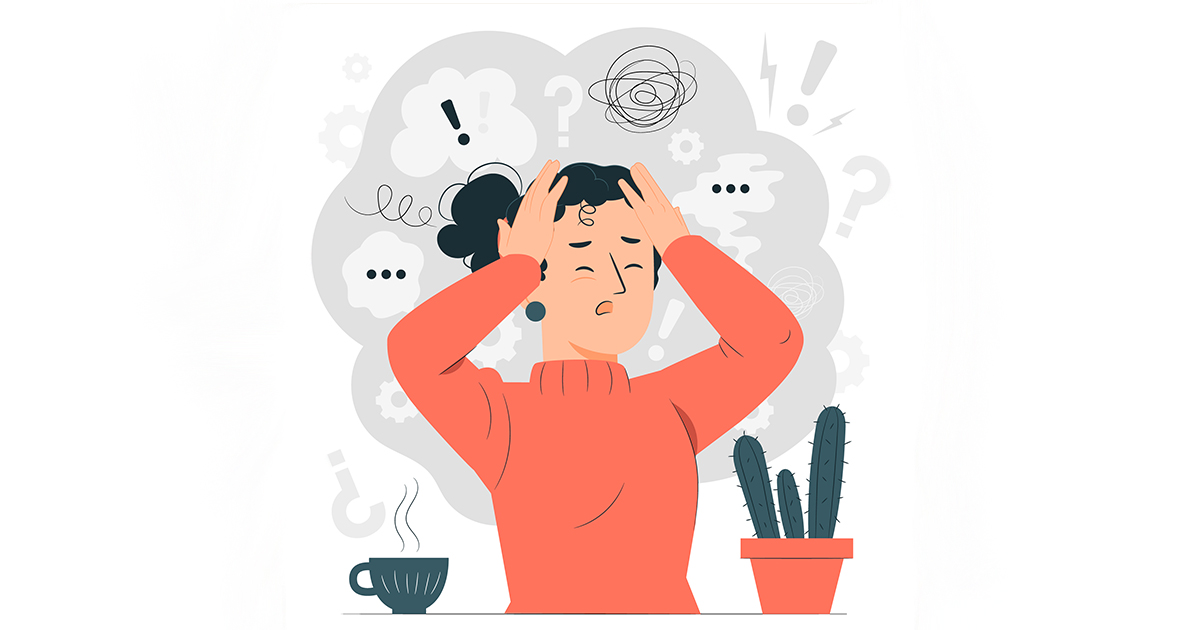Breast Cancer: Causes, Symptoms, Diagnosis, and Treatment Overview Breast cancer is one of the most common cancers affecting women worldwide, though it can also occur in men. It begins in the cells of the breast, typically...

Anxiety is something that everyone faces at some point in their lives. It’s that uneasy feeling you get before a big presentation, an important test, or even when you’re running late for an appointment. While a little bit of anxiety is normal and can even be helpful in some situations, for many people, it can become overwhelming and interfere with their daily lives. If you find yourself struggling with anxiety, don’t worry—you’re not alone, and there are effective strategies to help you cope. Let’s explore some practical and easy-to-implement techniques to manage anxiety.
Before we dive into coping strategies, it’s important to understand what anxiety is. Anxiety is a natural reaction to stress that manifests as feelings of worry, fear, or unease. It can be triggered by various factors, including work pressure, family issues, financial concerns, or health problems. While occasional anxiety is normal, chronic anxiety can lead to more serious mental health issues like anxiety disorders, which require professional treatment.
Identifying the signs and symptoms of anxiety is the first step towards managing it. Common symptoms include:
If you experience these symptoms regularly, it’s important to take steps to manage your anxiety before it escalates.
Deep breathing is one of the simplest and most effective ways to calm your mind and reduce anxiety. When you feel anxious, your breathing becomes shallow and rapid, which can make you feel even more stressed. Deep breathing exercises help slow your heart rate and promote relaxation.
How to do it:
Regular physical activity can greatly alleviate anxiety. Exercise releases endorphins, which are natural mood boosters, and it helps you focus on the present moment, interrupting the cycle of worry and rumination.
How to get started:
Having a structured daily routine can help reduce anxiety by providing a sense of predictability and control. When your days are planned, you spend less time worrying about what to do next and more time focusing on the present.
Tips for creating a routine:
Caffeine and alcohol can both exacerbate anxiety symptoms. Caffeine is a stimulant that can increase your heart rate and make you feel more jittery, while alcohol can disrupt your sleep and affect your mood.
What to do:
Mindfulness and meditation are excellent methods for managing anxiety. They help you stay grounded in the present moment, reducing the tendency to worry about the past or future.
How to practice mindfulness:
Social support is crucial for managing anxiety. Talking to friends, family, or a therapist can help you feel less isolated and provide a different perspective on your worries.
Ways to connect:
Sleep plays a vital role in regulating your mood and managing anxiety. Lack of sleep can make you more susceptible to anxiety and stress.
Tips for better sleep:
Anxiety often involves negative thinking patterns, such as catastrophizing (expecting the worst) or overgeneralizing (seeing a single negative event as a never-ending pattern). Learning to challenge and reframe these thoughts can help reduce anxiety.
How to challenge negative thoughts:
Spending time doing things you love can distract you from your worries and bring joy into your life. Engaging in hobbies and activities can also help you develop a sense of accomplishment and purpose.
Ideas for activities:
While these strategies can be highly effective for managing mild to moderate anxiety, it’s important to seek professional help if your anxiety is severe, persistent, or interfering with your daily life. A mental health professional can provide personalized treatment options, such as therapy or medication, to help you manage your anxiety more effectively.
Managing anxiety is a process that involves patience, practice, and persistence. By using these strategies regularly, you can reduce your anxiety levels and improve your overall well-being. Remember, reaching out for support is a sign of strength, and you don’t have to navigate your struggles alone. With the right tools and assistance, you can overcome anxiety and live a happier, more fulfilling life.
By following these tips and techniques, you can take control of your anxiety and lead a more peaceful and balanced life. Always remember that progress takes time, so be kind to yourself and celebrate each small step forward.
Share this with your loved one!
Breast Cancer: Causes, Symptoms, Diagnosis, and Treatment Overview Breast cancer is one of the most common cancers affecting women worldwide, though it can also occur in men. It begins in the cells of the breast, typically...
Bronchitis: Causes, Symptoms, Diagnosis, and Treatment Overview Bronchitis is an inflammation of the bronchial tubes, the airways that carry air to and from your lungs. When these airways become inflamed and swollen, they produce more mucus...
Amyotrophic lateral sclerosis (ALS) : Causes, Symptoms, Diagnosis, and Treatment Overview Amyotrophic lateral sclerosis (ALS), also known as Lou Gehrig’s disease, is a progressive neurodegenerative disorder that affects nerve cells in the brain and spinal cord....
Atherosclerosis: Causes, Symptoms, Diagnosis, and Treatment Overview Atherosclerosis is a condition where the arteries become narrowed and hardened due to a buildup of plaque on the inner walls. This plaque is made up of cholesterol, fatty...
Acne: Causes, Symptoms, Diagnosis, and Treatment Overview Acne is one of the most common skin conditions, affecting millions of people worldwide, particularly during adolescence. Though often thought of as a teenage issue, acne can persist into...
Addison’s disease: Causes, Symptoms, Diagnosis, and Treatment Overview Addison’s disease, also known as primary adrenal insufficiency, is a rare disorder that occurs when the adrenal glands, located on top of the kidneys, do not produce enough...
© EaseDiseases